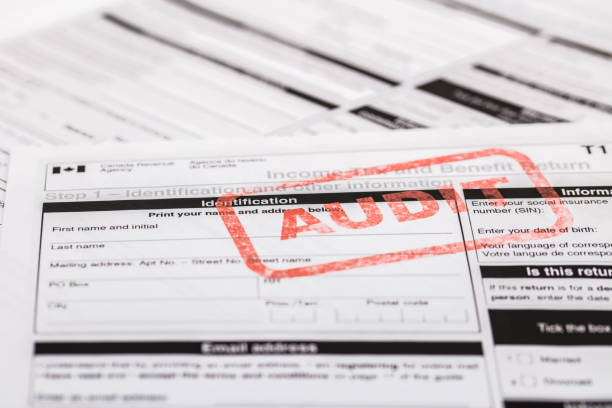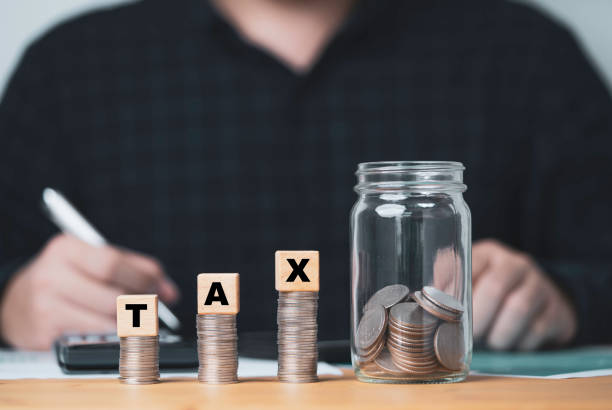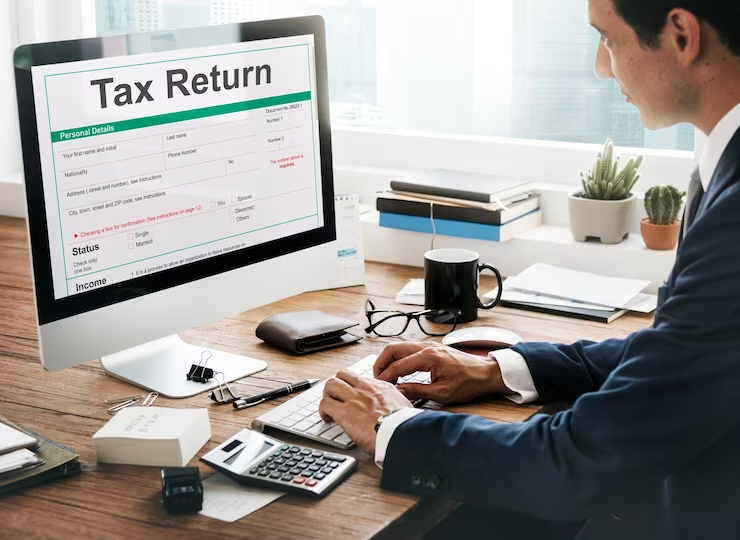How To Deal With A Tax Audit: Tips And Tricks

Image Credit: iStock
Are you worried about the possibility of a tax audit? The thought of it can be intimidating and overwhelming, but with some tax filing tips and tricks, you can make the process smoother and less stressful.
A tax audit is a review of your financial documents, including your credit score, to ensure that you have appropriately reported your income and deductions. Although having the CRA look into your personal finances can be unnerving, it is vital to remember that an audit does not always indicate that you have broken any laws.
In this guide, we will provide you with practical tips and tricks on dealing with a tax audit. So continue reading!
What Is A Tax Audit?
A tax audit is an examination of an individual's or business's tax return by the Canada Revenue Agency (CRA) to ensure compliance with tax laws and regulations. The purpose of a tax audit is to determine whether taxpayers have accurately reported their income, deductions and credits, and to identify any errors or discrepancies.
If you receive a tax audit notice, reviewing it carefully and taking the necessary steps to ensure a smooth and successful audit process is essential.
What Triggers A Tax Audit?
The CRA may select a tax return for audit based on several factors, including:
- Random Selection
- Information Matching Programs With Third-Party Sources
- High-Risk Transactions
- Large Deductions Or Credits
- Self-Employment Income
- Foreign Assets Or Income
- Previous Non-Compliance Issues
- Industry-Specific Issues
- Taxpayer Tips And Leads
What Should I Do If I Am Selected For A Tax Audit?
If you receive a tax audit notice from the Canada Revenue Agency (CRA), it can be a stressful and intimidating experience. However, keeping calm and taking the necessary steps are important to ensure the audit goes smoothly.

Image Credit: iStock
Here are some tips and tricks to help you deal with a tax audit before next tax season:
1. Do Not Panic
The first thing to do when you receive a tax audit notice is to stay calm and not panic. Receiving a notice does not necessarily mean that you have done any kind of tax scam.
The CRA may choose to audit your tax return randomly, or it could be due to an issue with third-party information matching programs or taxpayer tips and leads.
Take a deep breath and remember you have the right to defend yourself and your filed taxes.
Also, read How To Deal With Back Taxes And Unfiled Tax Returns.
2. Review The Notice Carefully

Image Credit: Freepik
Read the tax audit notice carefully to understand the reason for the audit, the time frame, and the documents and information the CRA wants you to provide. The notice will specify what aspects of your tax return are being audited and what period the audit will cover.
Understanding the audit's scope will help you prepare and gather the necessary documentation to support your claims. Ensure you fully comprehend the notice and ask for clarification if anything is unclear.
3. Do Not Ignore The Notice
Whatever you do, do not ignore the notice. Ignoring an audit notice will not make it go away, and it could lead to more severe consequences down the road.
The CRA or your state tax authority may assume that you are hiding something if you fail to respond, which could lead to additional penalties and interest.
4. Get Organized
Gather all the necessary documents and information that the CRA has requested. This may include receipts, invoices, bank statements, and other financial documents.
Make copies of all the documents and keep the originals in a safe place. Organize the copies in a way that makes it easy to follow your claims and tax benefits.
It is essential to have complete and accurate documentation during the audit process. By having your financial documents organized and easily accessible, you can reduce the time and energy required to respond to the CRA's requests.
5. Seek Professional Help

Image Credit: iStock
Consider hiring a tax professional, such as a chartered accountant or tax lawyer, to represent you during the audit. A tax professional can help you prepare for the audit, communicate with the CRA on your behalf, and ensure that your rights as a taxpayer are protected.
A tax professional can review your tax return and supporting documentation and help you prepare a response to the CRA's audit request. They can also guide you on what to expect during the audit process and help you understand the findings.
6. Respond To The CRA
Respond to the CRA's request for information promptly and honestly. If you do not understand something or need more time to provide the requested information, contact the CRA to discuss the matter.
It is important to be transparent and provide accurate information during the audit process. The CRA is looking for a complete and truthful account of your income and deductions, and if you have made a financial mistake, it is better to come clean and rectify the issue than to hide it.
7. Be Polite And Professional
Communicate with the CRA in a polite and professional manner. Avoid getting defensive or confrontational, as this could make the audit process more difficult for both parties.
Remember that the auditor is simply doing their job and ensuring everyone pays their fair share of taxes. Being polite and professional can help to build a positive relationship with the auditor and make the audit process go more smoothly.
8. Keep Detailed Records

Image Credit: Freepik
Keep detailed records of all communications with the CRA, including dates, times, and the names of the CRA representatives you speak with. This information can be helpful if there are any issues or disputes during the audit process.
It is important to keep track of all interactions with the CRA and maintain a record of all documentation provided to them. This information can support your claims, including your tax refund claim and deductions and be used as evidence if you need to appeal the audit findings.
9. Know Your Rights
Know your rights as a taxpayer under the Taxpayer Bill of Rights. This bill outlines the rights and obligations of taxpayers when dealing with the CRA, including the right to
- Be treated fairly and respectfully
- Receive clear explanations of the audit process and the information being requested
- Provide additional documentation or information to support your position
- Appeal the results of the audit if you disagree with them
If you believe the CRA has violated your rights, you can file a complaint with the Office of the Taxpayers' Ombudsman.
10.Do Not Volunteer Information
While it is important to be truthful and cooperative, you should also be careful not to volunteer information that is not requested. Stick to answering the auditor's questions and providing the information they request. Providing additional information irrelevant to the audit could lead to further issues.
What Happens After The Audit?

Image Credit: iStock
After the audit, the Canada Revenue Agency (CRA) will provide you with their examination results. If there are no discrepancies or issues, then you will receive a notice stating that your tax return has been accepted as filed.
However, if the CRA has identified discrepancies or issues, you will receive a notice of reassessment. This notice will outline any changes the CRA has made to your tax return, including any additional taxes, interest, or penalties that may be owed.
If you disagree with the audit results, you have the right to file an objection and appeal the decision. You can file an objection with the CRA, a formal process that involves submitting a written statement outlining why you disagree with the decision. The CRA will review your objection and may ask for additional information or documentation to support your position.
If you are not satisfied with the outcome of your objection, you can take your case to the Tax Court of Canada. It is important to remember that there are deadlines for filing complaints and appeals, so it is essential to act promptly if you disagree with the CRA's findings.
Final Takeaway
Dealing with a tax audit does not have to be scary. Being prepared, organized, and knowledgeable can make the process smoother and less stressful. Remember, the key is staying calm and honest with the IRS.
If you get audited, do not hesitate to seek help from a tax professional. They can guide you through the process and ensure that you are well-prepared.
On the other hand, the best way to avoid an audit altogether is to ensure your tax returns and tax refunds are accurate and complete. Take the time to review your documents carefully, and do not hesitate to seek help from a tax professional if needed.
So, take charge of your financial situation and proactively deal with a tax audit. Do not let the fear of an audit hold you back from achieving your financial stability.
Stay calm, and remember that you have the resources and support to tackle this challenge.
Good luck!


